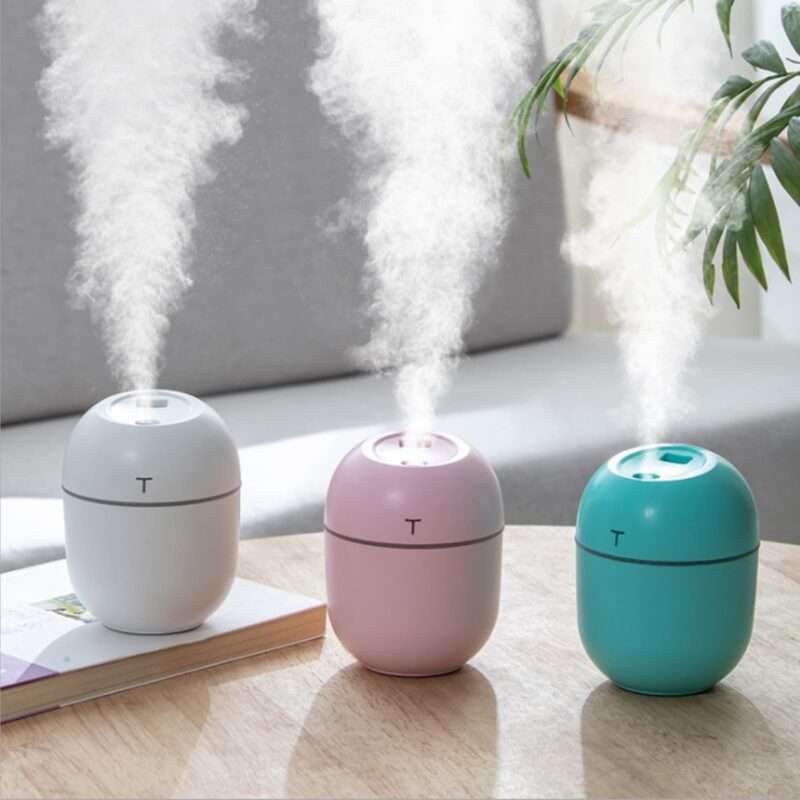Dry air can cause a variety of problems, including respiratory issues, dry skin, and allergies. This is especially true during the winter months, when the air is naturally drier. Air humidifiers can help alleviate these problems by adding moisture to the air. They are particularly beneficial for people who suffer from respiratory problems such as asthma, allergies, and the common cold. Air humidifiers can also help improve sleep quality and help plants thrive.
Improving Your Indoor Air with Air Humidifiers
In the dry winter months, the air in your home can become dry and uncomfortable. This can lead to dry skin, chapped lips, and a sore throat. It can also make it difficult to sleep. An air humidifier can help to add moisture to the air and alleviate these problems.

What is an air humidifier?
An air humidifier is a device that adds moisture to the air in your home. There are two main types of air humidifiers: cool mist and warm mist. Cool mist humidifiers use a fan to blow air through a water filter. Warm mist humidifiers boil water and release the steam into the air.
Benefits of using an air humidifier
There are many benefits to using an air humidifier, including:
- Relieves dry skin, chapped lips, and a sore throat
- Makes it easier to breathe
- Helps to prevent colds and flu
- Reduces the risk of allergies
- Protects wooden furniture and floors from cracking and warping
- Improves sleep quality
How To Choose An Air Humidifier
When choosing an air humidifier, there are a few things to consider, including:
- The size of your room
- The type of humidifier you want
- The features you want
Some of the most popular features on air humidifiers include:
- A humidistat
- A timer
- A filter
- A night light

There are three main types of air humidifiers:
- Cool mist humidifiers: These humidifiers release cool mist into the air. They are the most common type of humidifier and are a good choice for people who live in dry climates.
- Evaporative humidifiers: These humidifiers pass air through a wick that is soaked in water. This process evaporates the water into the air. Evaporative humidifiers are not as effective as cool mist humidifiers, but they are less expensive.
- Warm mist humidifiers: These humidifiers heat water and release steam into the air. They are a good choice for people who live in cold climates. Warm mist humidifiers can also help to sterilize the air.
No matter what type of air humidifier you choose, it is important to clean it regularly to prevent the growth of bacteria and mold. You should also use distilled water in your humidifier to prevent mineral buildup. When selecting an air humidifier, you should consider several factors, including:
- The size of the room you want to humidify
- The humidity level in your home
- Your budget
- The type of humidifier you prefer
- The maintenance requirements of the humidifier
- Noise level
- Additional features
With so many great air humidifiers on the market, you’re sure to find one that meets your needs.

Air Humidifier Features
In addition to the standard features, air humidifiers also offer a variety of additional features, which may depend on the model, its type, and your specific requirements. Here are additional features to consider:
- Smart features, such as the ability to automate the operation of the humidifier, integrate with smart home systems, or be controlled using an app
- Automatic shut-off feature, which turns off the humidifier when it runs out of water or after a set period of time
- Humidity-control sensor, which automatically adjusts the humidity output of the humidifier
- Built-in air purifier, which helps to remove pollutants from the air
- Diffuser, which allows you to add essential oils to the humidifier, which provides aromatherapy benefits
When choosing an air humidifier, it is important to find one that is the right size for your room. You should also choose a humidifier that has the features that you need. Be sure to read the manufacturer’s instructions carefully before operating your humidifier.
Ultimately, the best air humidifier for you will depend on your individual needs and preferences. Do some research and consider the factors listed above to find the perfect humidifier for your home. With a little care, you can enjoy the many benefits of having an air humidifier in your home.
Where To Place Your Air Humidifier
You should place your air humidifier in a central location in your home, away from heat sources and vents. You should also clean your air humidifier regularly according to the manufacturer’s instructions.
An air humidifier can be a valuable addition to your home, especially in the dry winter months. By adding moisture to the air, an air humidifier can help to improve your health and comfort. Here are some additional tips for using an air humidifier:
- Use distilled water to prevent mineral buildup.
- Clean the filter regularly.
- Don’t over-humidify your home.
- Consult your doctor if you have any respiratory problems.
I hope this blog post has been helpful. If you have any questions, please feel free to leave a comment below.
